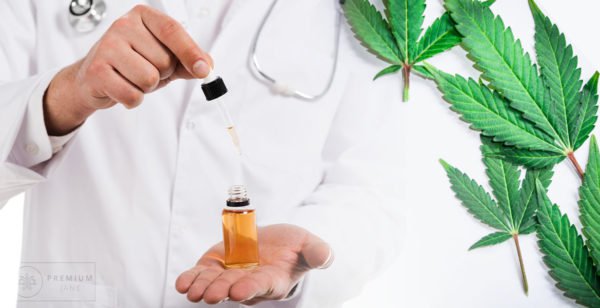
Cat gummies are fun to play with and delicious to eat. They come in many different flavors. Some are fruit gummies while others have sugar-free versions and some are infused with cannabis. They are safe for your cat.
Sugar overdose is a major risk for cats. Sugar overdose can cause diabetes and tooth loss. Your cat will not require sugar. Sugar can cause weight gain and obesity. This can lead to pressure on the joints and increase the risk for stroke.
Gummy Bears are sweet and entertaining, but not healthy for pets. Gummy bears not only have high sodium and calories, but are also full of sugar and a food coloring. They are likely to love these treats but should be kept out of reach.

Gummy bears present a danger for cats' throats. Because they are gum-like, pieces of gummy bears can easily become stuck in the cat's teeth. This can lead to many dental problems. Dental problems should be treated immediately.
Gummy bears don't have any toxic ingredients, but they contain a lot sugar. Cats aren't designed to metabolize human food, and they can't process sweets. Your cat doesn’t possess the enzymes that are required to break down carbohydrates. It is because they are unable to digest it. You can give your cat plain canned food and small amounts of milk or water if he eats too many gummy bears.
Gummy bears are dangerous for your cat and are a choking hazard. They don't contain enough protein or essential minerals to be considered cat food. The taste may not be appealing to your cat. They are not recommended for pets.
It is important to keep your cat away from gummy bears. Don't trick your cat into eating the gummy bears. You can cause an upset stomach if you do. This is rarely a serious problem. If your cat eats too many, it's best to consult a veterinarian immediately.

You can make your pet's favorite sugar-free gummy Bears. There are many options online for making these gummy bears. Among the most popular ones are those that use xylitol as the sweetener, which is usually not a good idea for your pet. Xylitol, a sugar alcohol, can cause liver failure and lethargy.
Gummy-related fads include the sour jellies. While sour jelly is a great source of vitamins, it's not a particularly smart choice for your cat. Sour jelly is not good for cats' teeth.
FAQ
How big is the global CBD industry?
According to Euromonitor International, the global CBD market was worth $US 3.5 Billion in 2015. This represents an increase of over 10% from 2014.
The report forecasts this figure to reach $US 6.4 billion by 2020, representing an average annual growth rate of 12%.
CBD products are predicted to account for half of all the hemp-derived products globally by 2020.
This includes CBD oils and other CBD products like food, beverages, cosmetics and pet care items.
Is the CBD market saturated?
CBD is seeing a steady growth rate of 25 percent annually. This growth rate is expected to continue at least for five more years. The industry is expected to grow from $2Billion today to $5Billion by 2020.
Two companies currently dominate the CBD market - GW Pharmaceuticals & Canndoc Ltd. Both are focused on developing pharmaceutical-grade products. However, they have not been very successful thus far. Both are struggling to gain traction on the market.
Cannabidiol (CBD), an extract from cannabis, contains less than 0.3% THC. It does not have any psychoactive properties. It can be used to treat epilepsy, and other medical conditions. It is also used to supplement a diet.
There are many varieties of CBD products. Some CBD products are made with whole plants extracts, others use CBD isolates.
All of these products share one thing: They contain low levels THC.
They are therefore legal under US federal law. You will still need to follow local laws if you are selling CBD products. You should always check with your state's regulations regarding the sales of CBD products.
Additionally, CBD products in some states are illegal. These states include California, Colorado and Mississippi, Missouri. New York, North Carolina. Ohio. Oklahoma. Oregon. Rhode Island. South Dakota. Texas. Utah. Virginia. Washington.
You will want to stay clear of CBD products if you are from one of these states.
What amount of CBD do I require?
The product type you're using will affect the amount of dosing.
The majority of CBD oils are available in strengths between 100mg and 1,000mg per bottle.
Some companies make CBD products with specific dosages, such as 25mg, 50mg, 75mg, and 100mg.
Charlotte's Web produces CBD products with high levels of CBD and other substances.
Start with a low dosage if you are unsure if CBD is right for you.
You can always move up later.
Is CBD a viable option?
Yes. However, it is not because of its medical benefits. Its ability to make people feel better without feeling high is what makes it so attractive.
It is a great alternative to prescription drugs because it doesn't make your feel different.
We know that cannabis can help with anxiety, depression, pain relief, insomnia, and other conditions, as evidenced by numerous studies.
Cannabis also contains cannabinoids which interact with receptors in our brains. This interaction can produce feelings of relaxation, well-being, and even a sense of well-being.
You should understand the effects of CBD oil on your body and health if you are considering using it.
Statistics
- however, one study also found that these effects were virtually abolished when the original media (a nutrient broth agar) was replaced with one containing 5% blood (increasing the minimum concentration to ~160 μM CBD) [179]. (ncbi.nlm.nih.gov)
- A recent systematic review of human trials also reported that individuals with epilepsy receiving CBD (5–20 mg·kg−1·day−1) were more likely to experience decreased appetite than those receiving placebo (i.e., ~20 vs. 5% of patients) (ncbi.nlm.nih.gov)
- The inhibition of FAAH is predicted to lead to an increase in brain and plasma concentrations of AEA, which acts as a partial agonist at CB1R and CB2R, thereby increasing endocannabinoid tone [92, 110]. (ncbi.nlm.nih.gov)
- While the primary injury may not be treatable, interventions that attenuate secondary sequelae are likely to be of benefit [203].Only one study (ncbi.nlm.nih.gov)
- HR −16 mmHg; 95% CI −26, −6; I2 = 92%) (ncbi.nlm.nih.gov)
External Links
How To
What are the major issues facing the CBD industry in general?
The current market for CBD-based products is expanding at a phenomenal rate. However, this market is still full of challenges for businesses that want to expand. These include a lack of consumer awareness, high cost of entry, limited access to capital, and regulatory uncertainty.
Many people don't know much about CBD or how it works. This means that they cannot make informed decisions about whether or not to buy CBD products.
Many CBD companies depend heavily on word of mouth marketing. This is costly, as it requires advertising and the hiring of staff to promote their brand.
Another issue for new entrants is the high cost production. It is very expensive to obtain the raw materials required for CBD products. For example, hemp needs to be grown in specific climates and soil types before it can be processed into CBD oil.
Grow enough hemp to produce CBD oil requires approximately $1,000 per annum. Many small farmers are unable or unwilling to invest in this product.
Another challenge new entrants face in the CBD market is the lack of access to capital. Many people who want to start a business are discouraged by banks due to the stigma associated with the industry.
Last but not least, there is regulatory uncertainty regarding the sale and distribution of CBD products. There are currently not clear guidelines as to how CBD products should marketing.
Although some states have passed legislation restricting CBD product sales, this has not become a national policy.
Only Nevada, Maine, and Nevada have legalized recreational pot.
Massachusetts and Michigan are however considering similar measures.
These changes could lead to increased competition between CBD manufacturers.
These factors are why many entrepreneurs prefer to work from home than open a physical store.